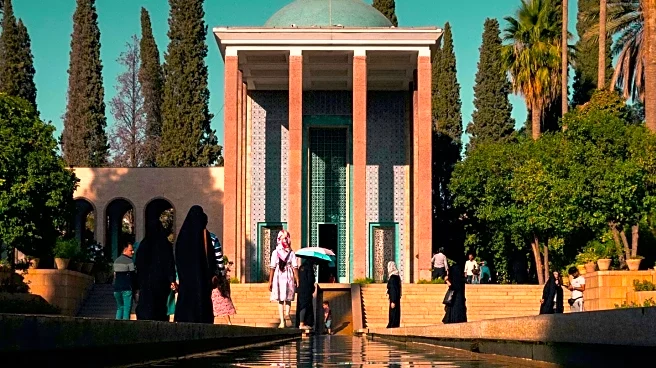What's Happening?
The Bahá’í Gardens in Acre, a site of significant religious importance, are set to reopen to the public after a closure lasting two and a half years. The gardens, which attract around 200,000 visitors annually, were closed in April 2023 due to a dispute
with the Acre Municipality over property taxes. The city argued that the site should be classified as a tourist attraction rather than a religious site, demanding millions of shekels in taxes. The Bahá’í leadership has announced that the dispute has been resolved, with the site's sacred status recognized. The Shrine of Bahá’u’lláh, the burial site of the Bahá’í faith's founder, is a place of prayer and pilgrimage and has been designated a UNESCO World Heritage site.
Why It's Important?
The reopening of the Bahá’í Gardens is significant for both the local economy and the global Bahá’í community. The closure had a negative impact on local businesses and tourism in Acre and the Western Galilee, with many accusing the municipality of harming the economy. Tour guides, restaurateurs, innkeepers, and merchants expressed frustration over the loss of visitors. The resolution of the dispute and the recognition of the site's sacred status may restore economic activity and tourism in the area. Additionally, the gardens serve as a vital spiritual site for Bahá’ís worldwide, reaffirming its importance as a place of pilgrimage and prayer.
What's Next?
With the gardens reopening, local businesses and tourism officials are likely to see an increase in visitors, potentially revitalizing the economy in Acre and the surrounding region. The Bahá’í World Centre has announced that the gardens will be open for guided tours and independent visits, with free admission as is customary at Bahá’í sites. The resolution of the tax dispute may also set a precedent for how religious sites are classified and taxed in the future, potentially influencing similar cases elsewhere.
Beyond the Headlines
The reopening of the Bahá’í Gardens highlights the complex relationship between religious sites and local governments, particularly in terms of taxation and classification. The resolution of this dispute underscores the importance of recognizing the cultural and spiritual significance of such sites, beyond their economic value as tourist attractions. This case may prompt discussions on how municipalities balance economic interests with the preservation of cultural heritage.















